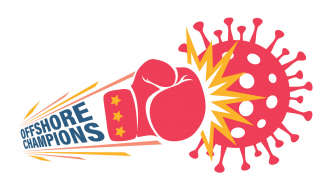Israel focus: Land of milk and honey
Few, if any, national economies escaped 2020 with a clean bill of health, and Israel was no exception. As per the Central Bureau of Statistics, the country’s economy contracted by 2.4% across the year, the most severe decline since the state was established in 1948. It is a testament to the unprecedented nature of the past year that Israel’s performance can be considered a relative success story – the average across the OECD countries was a 5.5% decline.
Though economically speaking Israel has fared comparatively well, more generally the region’s handling of the Covid-19 pandemic is a mixed story. When the first wave of the pandemic hit, Israel was still being overseen by a caretaker government following the inconclusive result of the legislative election in March 2020. A state of emergency was declared and legally enforceable restrictions were introduced, preventing citizens from leaving their homes except for a short list of specified reasons. To ease the economic strain, the government introduced a $22bn economic rescue package to bolster the healthcare system, assist the unemployed and support struggling businesses. These restrictions proved largely effective and by the end of May most restrictions had been lifted, allowing most Israelis to enjoy a relatively free early summer. Continue reading “Israel focus: Land of milk and honey”
Shoring up – the Offshore report
In what will undoubtedly be remembered as an unpredictable year in more ways than one, offshore firms across the globe leveraged their resilience and diverse practice offerings to weather the storm that 2020 brought. The US-China trade wars and the uncertainty around the EU/UK divorce gave way to the devastation of the global coronavirus pandemic, plummeting oil prices and markets in freefall, and the final throes of Brexit negotiations.
However, the offshore legal sector seemingly managed to duck every blow and avoid every collapse, with 2020 and early 2021 proving to be highly successful years across the offshore market. For Edward Mackereth, global managing partner of Ogier, ‘unprecedented was the word of 2020’, while Christian Luthi, chair of Conyers, states: ‘2020/21 has certainly tested the adaptability of the firm, and Conyers has come through extremely well’. Jonathan Green, global managing partner of Maples, adds: ‘2020 and early 2021 have been very active periods for us, setting new high-water marks in many of our practice areas. Our global teams have delivered without missing a beat, pandemic notwithstanding.’ Continue reading “Shoring up – the Offshore report”
Life in a bubble – the Malta report
According to the European Commission’s winter forecast, despite a severe economic contraction of around 9% in 2020, Malta’s economy will grow by 4.5% in 2021. A recent proposal by the Commission to end quarantine and testing for vaccinated adults travelling from one EU country to another will be welcome news for the island nation, for which tourism is one of the top five contributors to the economy. The Maltese government’s response to the Covid-19 pandemic has been robust and, at times, has been praised by the World Health Organisation. On 25 May, the minister for health Chris Fearne stated that 70% of the population had been vaccinated, making it the first country in the world to reach the estimated benchmark for herd immunity.
In June 2020, the Maltese government set out measures to alleviate the financial pressures brought on by the pandemic; these attempted to increase investment, incentivise domestic consumption and reduce the costs of operating a business. For workers, this meant the extension of the Covid-19 wage supplement with a particular focus on those who are dependent on the tourism industry for work. For businesses, a range of cost-cutting measures were introduced, including rent and electricity subsidies, refunds of trading licences, refunds on port charges and grants, among others. Employers were also offered cash to facilitate the costs of setting up workers to work remotely and a quarantine leave grant was offered for each worker who had to undertake mandatory quarantine. Also, at the start of the pandemic, €900m was provided in bank guarantees for businesses who required loans for operational matters, which was provided by the National Development and Social Fund, and a number of EU funds. Continue reading “Life in a bubble – the Malta report”
Turkey focus: Crisis, what crisis?
As Covid-19 continues to wreak havoc, many countries face both an economic and a health crisis. But for Turkey, the concept of crisis is nothing new: it has long been part of everyday life. The current malaise, which predates the pandemic, has its origins in the attempted coup of 2016 and the government’s authoritarian response: over 300 people were killed and 75,000 arrested, including 2,700 judges. Such coups d’état have punctuated Turkey’s historical narrative in every decade since the 1960s. More recently, there was the currency and debt crisis of 2018, which saw the credit rating agencies downgrade Turkey’s debt to junk status.
Notwithstanding these difficulties, President Erdoğan is still firmly in control. Added to the $120bn in infrastructure spending since 2003, new highways and rail links are planned. Turkey’s $730bn economy, the world’s 20th-largest, even managed to expand slightly last year. But problems persist: inflation at 15% and interest rates recently hiked to 19%, while the Turkish Lira’s precipitous decline against the US dollar has sparked an exodus of foreign capital. In an effort to boost tourism, one of the country’s strongest sectors, Turkey announced that it would be the first country to accept British holidaymakers without Covid checks. Despite Erdoğan’s promises to cut inflation in an attempt to restore confidence, sustained turbulence undermines the country’s economic credibility. Continue reading “Turkey focus: Crisis, what crisis?”
Africa focus: Africa first
In times of stress and unpredictability, it pays to be conservative. Most sensible investors will plump for safe havens during troubled times. So is Africa a senseless gamble?
Some 20 years after the term ‘Africa rising’ began to enter the world’s consciousness, the continent still delivers a plentiful supply of extreme volatility and complexity, intimidating factors that seep into deals, projects and other legal engagements. It is not a benign environment for law firms. Continue reading “Africa focus: Africa first”
Switzerland focus: Still standing
Switzerland is often singled out as the prime model for a stable economy – apart from a temporary blip in 2009 following the global economic crisis, GDP growth has moved consistently upwards. The country’s strong employment figures and national debt position have only underlined its positive reputation even more. But when Covid-19 hit, not even Switzerland could roll with all the punches it had to take, and continue growing.
That said, at the end of 2020 the economic activity was only 2% below its pre-crisis level – a strong bounceback, especially compared to other European countries. While Switzerland remains locked down for the first quarter of 2021, the prognosis for the year ahead looks promising. Continue reading “Switzerland focus: Still standing”
The Euro Elite 2021: Keeping the cogs turning
The Euro Elite overview: Enduring endurance
Much of the narrative of Legal Business for the past 300 issues has involved the internationalisation – and the failed internationalisation – of the UK-based global firms. When I started out in legal journalism in the late ‘90s, the activity of the major Anglo-Saxon firms in mainland Europe was at its peak. Many, like White & Case and Weil, Gotshal & Manges and CMS, had cut a swathe through Central and Eastern Europe, positioning themselves to take advantage of the wave of privatisations in new independent nations such as the Czech Republic and Romania following the collapse of the Berlin Wall. But the really bloody battles (in a law firm context) were taking place in some of the key markets of France, Germany, Benelux and Italy, where the Magic Circle firms were regularly putting noses out of joint at an alarming rate by either trying to take over leading firms or just hire as many of their key corporate partners as they could.
I witnessed first hand some shockingly arrogant behaviour from senior individuals towards what are now Euro Elite firms. Once, at the launch of a new initiative combining a number of key European firms, I saw one UK management figure sniggering as his German counterpart gave a speech in English. In an interview in Madrid with the fabulously charismatic founding partner of Uría & Menéndez, Rodrigo Uría González, he recalled having to get armed guards to eject from his office a particularly truculent London-based partner trying far too hard to get Uría on board in another hare-brained European alliance. Continue reading “The Euro Elite overview: Enduring endurance”
Euro Elite: Baltics – Small yet spirited
Often overlooked, the Baltics is fast becoming one of the most exciting tech startup hubs in Europe. Home to only roughly six million people, the countries of Estonia, Lithuania and Latvia have the largest number of startups per capita in Central and Eastern Europe and the venture capital firm Index Ventures has rated these countries as the most ‘startup-friendly’ in Europe, largely owing to policies on stock options, tax, employment and a low cost of living.
One remarkable statistic is that since Brexit, Lithuania is now the largest fintech hub in the EU and in some cases is actually moving investment from the UK to Lithuania. Continue reading “Euro Elite: Baltics – Small yet spirited”
















